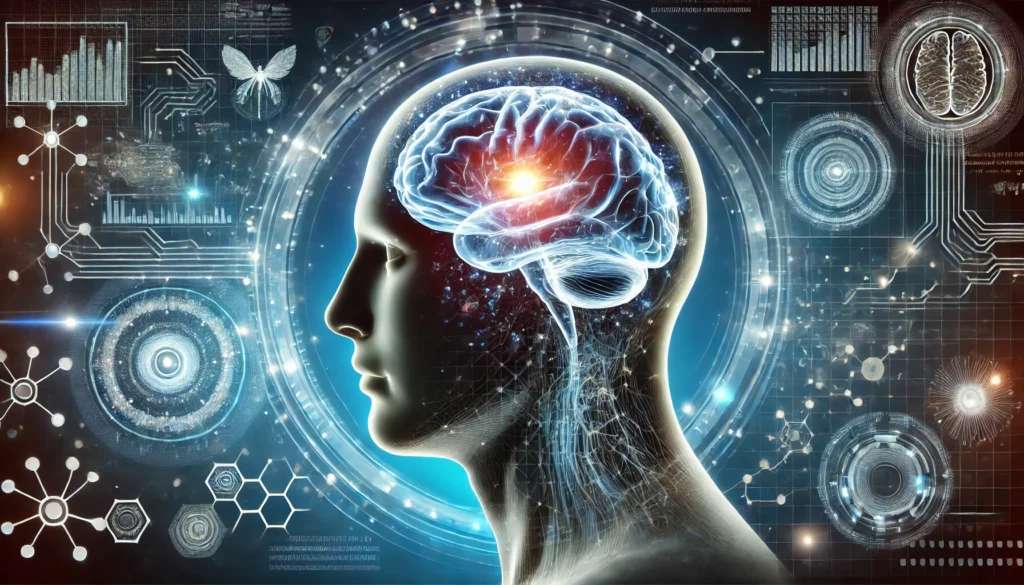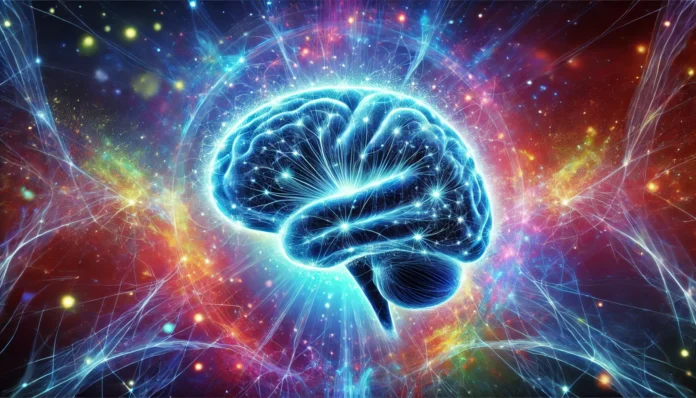Understanding Brain Health and Its Importance
The human brain is an extraordinary organ, controlling every thought, movement, and function of the body. Maintaining a healthy human brain is essential for cognitive function, emotional well-being, and overall quality of life. As people age, various factors, including lifestyle choices, diet, and genetics, influence brain health. Ensuring the brain remains neurologically healthy is a critical component of longevity and mental acuity. Understanding the best things for brain health is the first step toward preserving memory, focus, and cognitive abilities well into old age. A brain healthy vs damaged can significantly impact daily life, affecting everything from decision-making skills to emotional stability.
You may also like : How Does Exercise Improve Mental Health? Science-Backed Benefits You Should Know
A neurologically healthy brain is marked by sharp cognitive function, emotional resilience, and the ability to adapt to new challenges. By contrast, a damaged or unhealthy brain can lead to cognitive decline, memory problems, and increased susceptibility to neurological disorders such as Alzheimer’s disease or dementia. The good news is that maintaining optimal neural health is achievable through a combination of scientifically supported lifestyle choices and habits.
Nutrition and Brain Health
One of the most influential factors in cognitive well-being is diet. The brain requires specific nutrients to function efficiently, and deficiencies can lead to cognitive impairment over time. A balanced diet that prioritizes brain-boosting foods can significantly impact memory retention, problem-solving abilities, and overall mental clarity. Consuming a variety of nutrient-dense foods ensures that the brain remains strong and adaptable.
Omega-3 fatty acids, found in fatty fish such as salmon, sardines, and mackerel, are among the best things for brain health. These essential fats support neural connections, reduce inflammation, and contribute to improved cognitive function. Additionally, antioxidants from berries, dark leafy greens, and nuts help protect brain cells from oxidative stress, which is linked to cognitive decline. Whole grains, such as quinoa, brown rice, and oats, provide a steady source of glucose, the brain’s primary fuel, ensuring sustained mental energy throughout the day.
Beyond individual nutrients, a Mediterranean-style diet has been consistently associated with improved neural health. This diet, rich in healthy fats, lean proteins, and fiber, has been linked to reduced risk of neurodegenerative diseases. Limiting processed foods, refined sugars, and trans fats is equally important, as these substances can contribute to inflammation and hinder cognitive performance. Hydration is also crucial; even mild dehydration can impair focus, short-term memory, and problem-solving skills.
Physical Activity and Cognitive Function
Regular physical exercise plays a vital role in maintaining a healthy human brain. Exercise increases blood flow to the brain, delivering oxygen and essential nutrients that support cognitive function. Aerobic activities, such as running, swimming, and cycling, have been shown to enhance memory and protect against age-related cognitive decline.
Strength training and resistance exercises are equally beneficial for neural health. Studies indicate that weightlifting and resistance training can promote the release of brain-derived neurotrophic factor (BDNF), a protein that supports neuron growth and connectivity. Engaging in a combination of aerobic and strength-training exercises provides a well-rounded approach to cognitive preservation.
Another important aspect of brain health is balance and coordination training. Activities such as yoga, tai chi, and dance challenge the brain to form new neural pathways, improving spatial awareness and reaction time. These exercises not only enhance physical fitness but also strengthen cognitive flexibility and problem-solving abilities.

Sleep and Its Impact on the Brain
Quality sleep is fundamental for maintaining brain health. During sleep, the brain undergoes critical processes such as memory consolidation, toxin removal, and neural repair. Chronic sleep deprivation can lead to cognitive impairment, decreased focus, and an increased risk of neurological disorders.
The brain operates in sleep cycles, alternating between rapid eye movement (REM) and non-REM sleep stages. REM sleep is particularly important for memory processing and emotional regulation. Poor sleep habits, such as inconsistent sleep schedules or excessive screen time before bed, can disrupt these cycles, negatively impacting overall cognitive function.
To optimize brain health, it is recommended to maintain a consistent sleep routine, create a dark and quiet sleep environment, and avoid stimulants such as caffeine and electronic devices before bedtime. Practicing relaxation techniques, such as deep breathing and meditation, can also improve sleep quality and contribute to a neurologically healthy mind.
Mental Stimulation and Lifelong Learning
Challenging the brain with new experiences and intellectual engagement is one of the best things for brain health. Cognitive stimulation encourages neuroplasticity, the brain’s ability to form new neural connections. Lifelong learning, problem-solving tasks, and creative pursuits help maintain cognitive function and prevent mental decline.
Engaging in activities such as reading, puzzles, learning a new language, or playing a musical instrument stimulates various regions of the brain. Social interactions also play a crucial role in mental health; meaningful conversations, group activities, and collaborative projects provide cognitive benefits and emotional well-being.
Technology can also be leveraged for brain health. Brain-training applications, memory exercises, and educational programs offer accessible ways to keep the mind sharp. However, excessive screen time and passive content consumption should be avoided, as they can lead to mental fatigue and decreased cognitive engagement.
Stress Management and Emotional Well-Being
Chronic stress can have detrimental effects on brain health, leading to inflammation, memory problems, and an increased risk of mental health disorders. Managing stress effectively is essential for maintaining a neurologically healthy brain. Techniques such as mindfulness meditation, deep breathing exercises, and regular physical activity help regulate stress hormones and promote emotional resilience.
Social support systems also play a vital role in brain health. Maintaining strong relationships, seeking emotional support, and engaging in meaningful social interactions can buffer against the negative effects of stress. Practicing gratitude, journaling, and engaging in hobbies that bring joy can further enhance emotional well-being and cognitive stability.

The Role of Preventative Health Measures
Preventative healthcare plays a significant role in maintaining brain health. Regular check-ups, blood pressure monitoring, and managing conditions such as diabetes and cardiovascular disease contribute to optimal neural function. Many chronic health conditions are linked to cognitive decline, emphasizing the importance of proactive health management.
Avoiding smoking, limiting alcohol consumption, and maintaining a healthy body weight are additional factors that support brain health. Exposure to environmental toxins, such as air pollution and heavy metals, should also be minimized to protect neural health. Regular cognitive assessments and early intervention for any signs of memory decline can aid in preserving long-term cognitive function.
Frequently Asked Questions (FAQ) About Brain Health
1. What are the three things the brain needs most to stay healthy?
A healthy human brain requires three fundamental elements to maintain optimal function: oxygen, nutrients, and stimulation. Oxygen is essential for brain health because neurons rely on a steady supply to generate energy and maintain cognitive abilities. Nutrients, particularly omega-3 fatty acids, antioxidants, and B vitamins, support neural health by reducing inflammation and promoting neurotransmitter balance. Stimulation, both mental and physical, encourages neuroplasticity, allowing the brain to adapt and grow new neural connections. Engaging in lifelong learning, physical activity, and social interaction are some of the best things for brain health, as they prevent cognitive stagnation and decline.
2. How can I tell if my brain is healthy or damaged?
The difference between a human brain healthy vs damaged can often be detected through cognitive function, memory retention, and emotional stability. A neurologically healthy brain supports clear thinking, problem-solving, and emotional regulation, whereas a damaged brain may struggle with memory loss, mental fog, and mood disorders. Chronic stress, poor diet, and lack of sleep can gradually impair brain health, making it crucial to monitor cognitive abilities over time. Regular cognitive assessments, such as memory tests and executive function evaluations, can help determine the state of brain health. Additionally, maintaining strong social connections and engaging in mentally stimulating activities can help safeguard neural health and detect early signs of cognitive decline.
3. Can brain damage be reversed, and how can I fix my brain?
While some types of brain damage are irreversible, many cognitive impairments can be improved or even reversed with the right interventions. Strategies on how to fix your brain include dietary changes, regular exercise, and brain-training activities. Consuming anti-inflammatory foods, such as leafy greens and fatty fish, can support neural repair and cognitive recovery. Physical exercise, particularly aerobic activity, increases blood flow to the brain, aiding in the regeneration of neural pathways. Additionally, cognitive therapy and mindfulness meditation can help restore cognitive function and emotional stability, making them some of the best things for brain health.
4. How does stress affect brain health, and what can be done to counteract its effects?
Chronic stress releases high levels of cortisol, which can damage brain cells and impair memory formation. Over time, stress-related inflammation can contribute to neurodegenerative diseases and cognitive decline. To maintain a neurologically healthy brain, it is essential to adopt stress-management techniques such as mindfulness meditation, breathing exercises, and regular physical activity. Engaging in hobbies and spending time in nature can also help reduce stress-related brain damage. Practicing gratitude and positive thinking further support neural health by fostering emotional resilience and reducing the long-term effects of stress.
5. What role does hydration play in brain function?
Hydration is crucial for maintaining a healthy human brain, as even mild dehydration can impair focus, memory, and mood. Water helps transport essential nutrients to brain cells and removes toxins that accumulate during neural activity. Dehydration can lead to cognitive fatigue, headaches, and slower reaction times, negatively affecting daily productivity. To support brain health, aim to drink at least eight glasses of water daily, increasing intake during physical activity or hot weather. Incorporating hydrating foods, such as watermelon, cucumbers, and citrus fruits, can further support optimal neural health.
6. How does social interaction contribute to brain health?
Social engagement is one of the best things for brain health, as it strengthens neural connections and enhances emotional intelligence. Meaningful conversations and social activities stimulate cognitive processes, helping prevent mental decline. Studies suggest that individuals with strong social networks are less likely to develop dementia or depression, highlighting the importance of maintaining friendships and participating in group activities. Engaging in social games, such as chess or group discussions, further reinforces problem-solving skills and memory retention. To keep the brain healthy, prioritize regular interaction with friends, family, and community members.
7. What impact does gut health have on the brain?
The gut-brain connection plays a significant role in neural health, as gut bacteria influence neurotransmitter production and inflammation levels. A well-balanced gut microbiome supports a neurologically healthy brain by regulating mood, memory, and stress responses. Consuming probiotic-rich foods, such as yogurt, kimchi, and fermented vegetables, can enhance brain function by promoting a healthy gut environment. Additionally, prebiotic fibers found in bananas, garlic, and whole grains support beneficial gut bacteria, further improving cognitive health. Maintaining gut health through a balanced diet and reducing processed food intake is essential for overall brain health.
8. Can music improve brain function?
Listening to and playing music has been shown to enhance cognitive function, memory, and emotional regulation. Music therapy is often used to support individuals with neurological conditions, as it helps improve neural connectivity and recall abilities. Learning to play an instrument strengthens fine motor skills and problem-solving abilities, making it one of the best things for brain health. Additionally, rhythmic sounds can promote relaxation, reduce stress hormones, and enhance focus, supporting neural health over time. Incorporating music into daily routines can provide cognitive and emotional benefits, making it a valuable tool for maintaining a healthy human brain.
9. How does exposure to nature affect brain health?
Spending time in natural environments has been linked to improved cognitive function, reduced stress, and enhanced creativity. Nature exposure stimulates the brain’s sensory processing centers, promoting relaxation and focus. Activities such as hiking, gardening, or simply taking a walk in a green space can improve mood and mental clarity. The fresh air and sunlight associated with outdoor activities contribute to neural health by supporting vitamin D production and oxygen circulation. Integrating nature-based activities into daily life can significantly enhance brain health and overall well-being.
10. What future advancements in neuroscience could improve brain health?
Emerging research in neuroscience is uncovering new ways to enhance brain health and prevent cognitive decline. Advances in neurotechnology, such as brain-computer interfaces and transcranial magnetic stimulation, show promise in improving cognitive function and treating neurological disorders. Personalized medicine approaches, which tailor brain health strategies based on genetic and biomarker analysis, are also gaining traction. Additionally, research into nootropic compounds and neuroprotective supplements is expanding our understanding of how to fix your brain and optimize mental performance. As neuroscience continues to evolve, new interventions and discoveries will shape the future of neural health and cognitive longevity.

Conclusion: A Holistic Approach to Brain Health
Maintaining a healthy human brain requires a multifaceted approach that encompasses nutrition, physical activity, sleep, mental stimulation, stress management, and preventative healthcare. Understanding the difference between a brain healthy vs damaged underscores the importance of proactive measures to protect cognitive function. By integrating scientifically supported strategies into daily life, individuals can optimize their neural health, enhance cognitive performance, and promote longevity. Investing in brain health today ensures a sharper, more resilient mind for the future.
brain function optimization, cognitive enhancement strategies, mental clarity techniques, neuroprotective lifestyle, cognitive resilience, improving memory retention, brain-boosting nutrition, lifestyle habits for brain longevity, neuroplasticity exercises, mindfulness for cognitive health, holistic brain wellness, anti-aging for the brain, brain-healthy superfoods, natural ways to support brain function, emotional well-being and cognition, cognitive fitness practices, ways to enhance mental sharpness, habits for long-term brain health, strategies to prevent cognitive decline, maintaining brain vitality
Further Reading:
How to Keep Your Brain Healthy and Sharp: A Comprehensive Guide
9 Tips To Boost Your Memory (Backed By Science)
How to Train Your Brain to Focus: Strategies for a Distraction-Free Mind
Disclaimer
The information contained in this article is provided for general informational purposes only and is not intended to serve as medical, legal, or professional advice. While Health11News strives to present accurate, up-to-date, and reliable content, no warranty or guarantee, expressed or implied, is made regarding the completeness, accuracy, or adequacy of the information provided. Readers are strongly advised to seek the guidance of a qualified healthcare provider or other relevant professionals before acting on any information contained in this article. Health11News, its authors, editors, and contributors expressly disclaim any liability for any damages, losses, or consequences arising directly or indirectly from the use, interpretation, or reliance on any information presented herein. The views and opinions expressed in this article are those of the author(s) and do not necessarily reflect the official policies or positions of Health11News.


